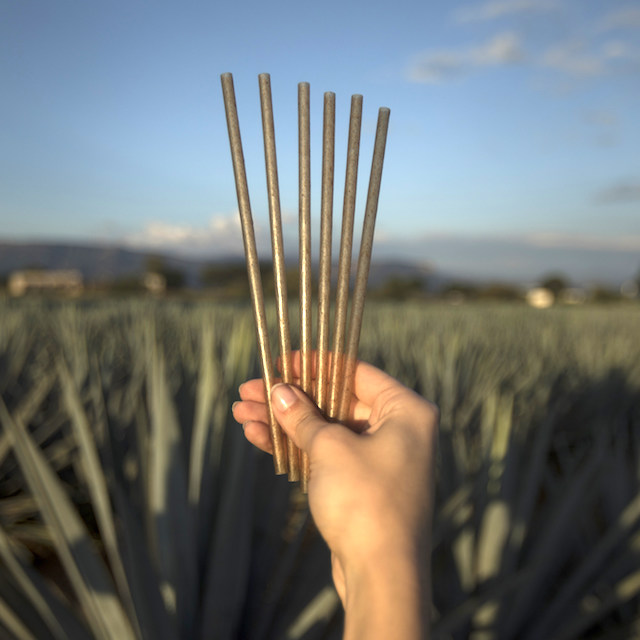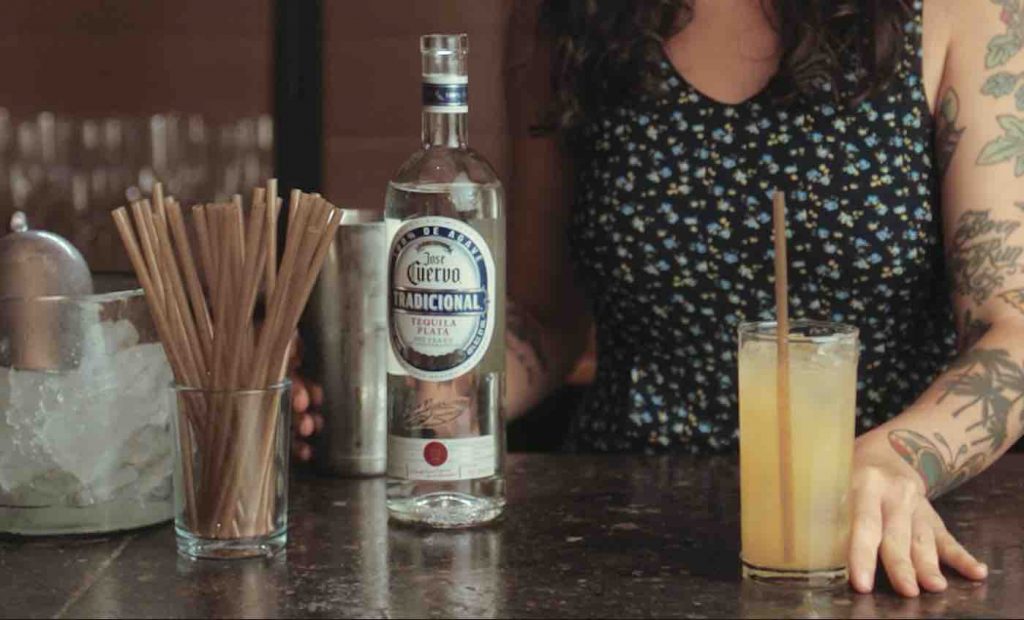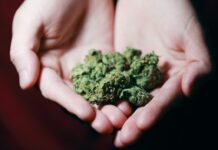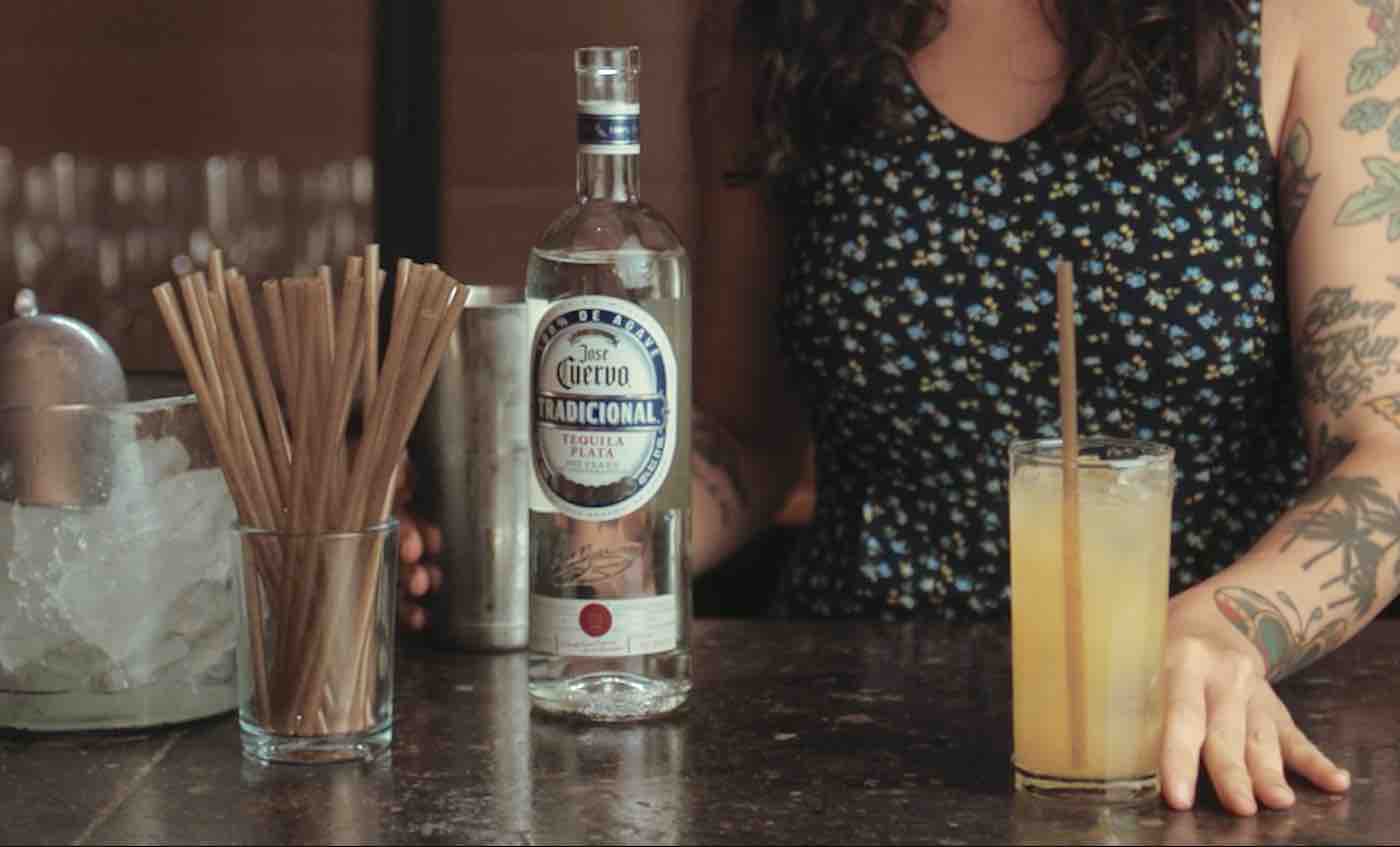
Last month, internationally renowned tequila brand Jose Cuervo unveiled their latest eco-friendly initiative: salvaging the leftover agave fibers from their distilling process and upcycling them into a more sustainable alternative to regular plastic straws.
The company is hailing their “Agave Project” straws as a first-of-its-kind biodegradable, bio-based drinking straw that will decompose up to 200 times faster than regular plastic.
Developed in partnership with the scientists at BioSolutions Mexico and the production team at Mexico-based PENKA, the creation of the agave-based straws sets out to offer a more sustainable alternative for the beverage industry, and utilizes the tons of fibrous material left over from the tequila-making process.
In 2020, millions of Jose Cuervo biodegradable agave-based straws will be rolled out at bars, restaurants, and Jose Cuervo events across the US and Mexico in a bid to reduce the consumption of regular plastics from the tequila-drinking experience.
LOOK: This Carbon-Negative Vodka is Brewed ‘From Thin Air’ Using Solar Power, Water, and CO2
As a family-run company with 225 years of tequila distilling experience, and the largest producer of agave by-product globally, Jose Cuervo has reportedly spent years exploring the potential of agave fiber as an alternative to plastic, paper, housing bricks, and fuel. Working with new partners like BioSolutions Mexico and PENKA marks the beginning of the rapid innovation needed to produce these sustainable items at scale and drive meaningful environmental impact.
“The past, present, and future of Jose Cuervo is tied directly to the agave plant – without it, we would not exist,” said Alex Coronado, Master Distiller and Head of Operations at Jose Cuervo. “It takes an average of 6 years to grow an agave plant before it is mature enough to harvest for tequila production, and we have to be committed to finding more ways to use the agave fibers once that process is complete. The debut of our biodegradable, agave-based drinking straws is a new step in utilizing the full potential of this very special Mexican agricultural product.
“As the tequila industry worldwide booms, it is our company’s responsibility as the leader to take care of the agave plant and ensure that we are producing tequila sustainably,” added Coronado.
Made with an agave bio-based and FDA-approved composite, the new straws replace around a third of the polymers used in traditional straw production, and at the end of its lifecycle can be consumed by microorganisms to fully biodegrade within one to five years in landfill conditions. This is a significant improvement over ordinary plastic drinking straws, which takes considerably more years in the same landfill conditions.
“As a by-product of the tequila industry, agave fiber is a rich resource we have harnessed to create an everyday, more sustainable alternative to plastic,” said Ana Laborde, CEO and Founder of BioSolutions Mexico and PENKA. “The agave fiber in our bio-based composites is an ideal material that not only works as a replacement to plastic, but simultaneously reduces the dependency on petroleum-based polymers, fossil fuels and water for the production of our straws.”

The agave-based straws feature a mouthfeel and texture similar to traditional plastic straws, with the agave fibers visibly creating a natural, organic tan color. The use of agave fiber by-product is a transformative improvement on other plant-based materials as the natural resources needed for growth is very low compared to plant-based materials coming from corn or potato crops.
“Sustainability isn’t just about biodegradability—that’s the end of the story, but not the beginning. It’s also about the life of the plant and how much energy and resources you need to create the biomaterial. Jose Cuervo’s upcycling of agave fibers generates a virtuous circle, and is the start of creating bio-based hybrid products that offer a meaningful improvement over traditional plastic materials,” continues Laborde.
Toast The Good News With Your Friends By Sharing It To Social Media…





















It’s a positive step and in a pinch better than full plastic.
I also feel that where we are globally with trash….people could due without for the most part.